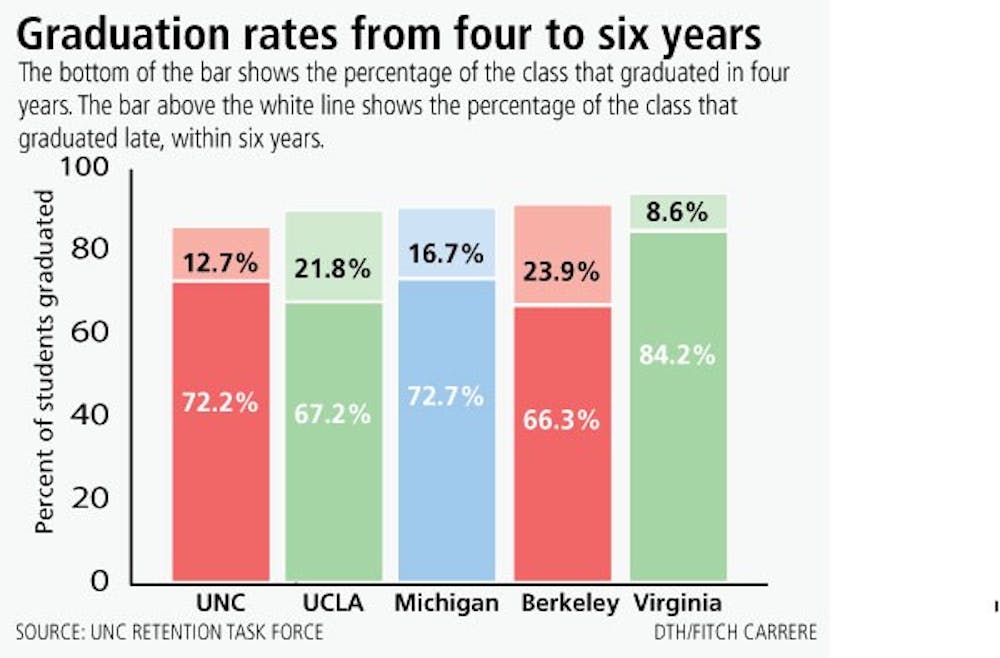Cynthia Demetriou, retention coordinator in the Office of Undergraduate Education, said the eight-semester policy was created after a 2004 study that found students who took time off were less likely to graduate.
“The goal to have students complete their degrees in eight semesters is because they are more likely to stay on track,” Demetriou said.
That goal is shared by other universities. At UVa., students are only allowed to take eight semesters as full-time students, said Rachel Most, assistant dean in the College of Arts and Sciences at UVa.
Most said UVa. is active in tracking student progress and communicating with students who aren’t meeting expectations.
“The dean tracks students,” Most said. “If they don’t have 54 hours after two years, or 84 after three years, they cannot continue as a full-time student. They have to make up the hours as a part-time student or during the summer.”
Students who fall behind in credit hours have a hold put on their accounts and must explain their situation to their dean.
If a student is too far behind a benchmark, Most said they are not allowed to continue as full-time students and must make up the hours as part-time students or during the summer before they can return to full-time status.
She added that this policy works because if students are behind, it is usually only by a few hours.
“By the time they are in their eighth semester they are pretty close to graduating,” she said.
UNC has a similar progression plan for students, requiring students to reach 24, 51 and 78 hours after their first, second and third years respectively, said Bobbi Owen, assistant dean for undergraduate education at UNC.
“We want our students to graduate,” Owen said. “And if they’re not going to graduate at the end of eight, nine, or 10 semesters, we’re going to keep them, but we want to understand why they are not graduating on time.”
Owen said she hopes that new tools, such as a degree auditing system to be released in January on ConnectCarolina, will help students stay on track toward graduation.
Unlike UNC, UVa. has a single dean designated specifically to help transfer students. Some transfer students said they want help like that.
To get the day's news and headlines in your inbox each morning, sign up for our email newsletters.
Joel Hall, a junior business major, transferred from the University of Central Florida and is one of many transfer students who won’t graduate on time.
“Coming to a liberal arts school, there are more classes that are required so you have to beef up your schedule with classes that aren’t related to your major,” Hall said. “The liberal education was the big thing, because UCF doesn’t require fluffy courses.”
In addition to meeting new requirements when transferring to UNC, getting credit for classes taken elsewhere has proven to be one of the biggest obstacles transfer students face in trying to graduate in eight semesters.
“A lot of (credits) did not transfer in, but some of them did, and the ones that did I really had to fight for,” Scott said.
Hall said petitioning for his credits was an arduous process that sometimes required him to show the classes he took at UCF were of the same caliber of classes at UNC.
“They make it so hard for transfers,” Hall said. “If people didn’t save their syllabus from like their freshman year, they’re screwed. Luckily, I’d saved mine.”
Contact the University Editor at udesk@unc.edu.



